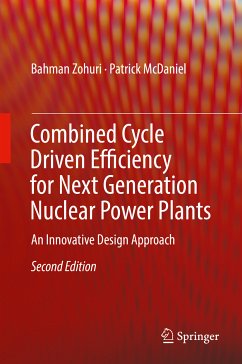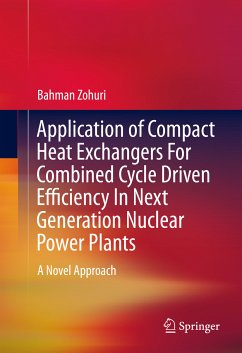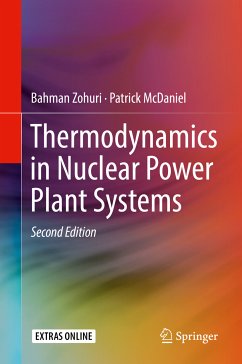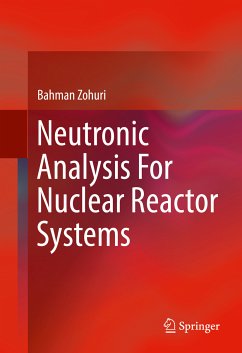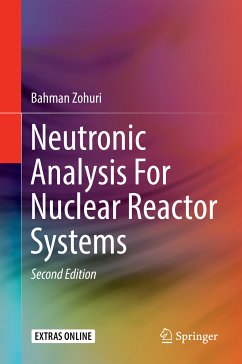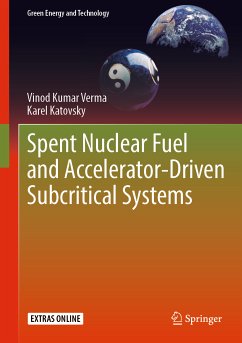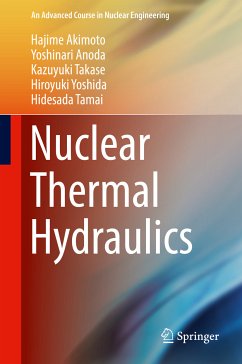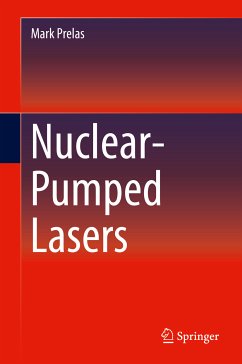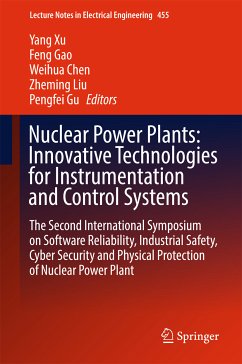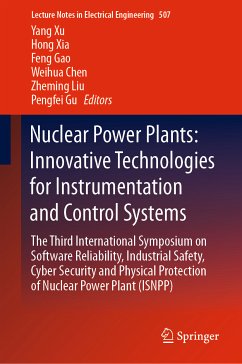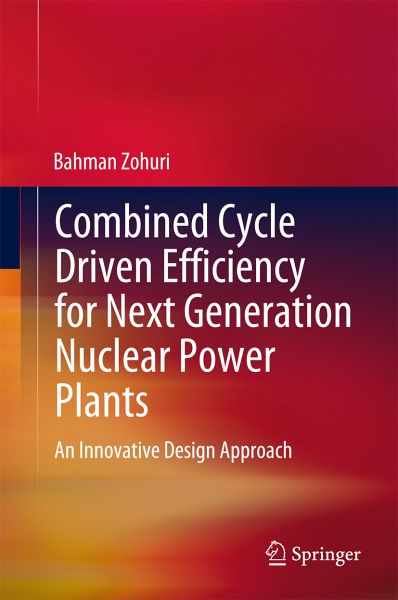
Combined Cycle Driven Efficiency for Next Generation Nuclear Power Plants (eBook, PDF)
An Innovative Design Approach
Versandkostenfrei!
Sofort per Download lieferbar
73,95 €
inkl. MwSt.
Weitere Ausgaben:

PAYBACK Punkte
37 °P sammeln!
Introduces the concept of combined cycles for next generation nuclear power plants, explaining how recent advances in gas turbines have made these systems increasingly desirable for efficiency gains and cost-of-ownership reductionPromulgates modelling and analysis techniques to identify opportunities for increased thermodynamic efficiency and decreased water usage over current Light Water Reactor (LWR) systemsExamines all power conversion aspects, from the fluid exiting the reactor to energy releases into the environment, with special focus on heat exchangers and turbo-machineryProvides exampl...
Introduces the concept of combined cycles for next generation nuclear power plants, explaining how recent advances in gas turbines have made these systems increasingly desirable for efficiency gains and cost-of-ownership reduction
Promulgates modelling and analysis techniques to identify opportunities for increased thermodynamic efficiency and decreased water usage over current Light Water Reactor (LWR) systems
Examines all power conversion aspects, from the fluid exiting the reactor to energy releases into the environment, with special focus on heat exchangers and turbo-machinery
Provides examples of small projects to facilitate nuanced understanding of the theories and implementation of combined-cycle nuclear plants
This book explores combined cycle driven efficiency of next generation nuclear power plants, and describes how to model and analyze a thermally heated multi-turbine power conversion system operating with atmospheric open air as the working fluid. The included studies are intended to identify paths for future work on next generation nuclear power plants (GEN-IV and beyond), leveraging advances in natural-gas-fired turbines that enable coupling salt-cooled, helium-cooled, and sodium-cooled reactors to a Nuclear Air-Brayton Combined Cycle (NACC). These reactors provide the option of operating base-load nuclear plants with variable electricity output to the grid using natural gas or stored heat to produce peak power. The author describes overall system architecture, components, and detailed modeling results of Brayton-Rankine Combined Cycle power conversion systems and Recuperated Brayton Cycle systems, since they offer the highest overall energy conversion and output efficiencies. With ever-higher temperatures predicted in new generations of power plants, this book's investigation of potential avenues for thermodynamic efficiency gains will be of great interest to nuclear engineersand researchers, as well as power plant operators and students.
Promulgates modelling and analysis techniques to identify opportunities for increased thermodynamic efficiency and decreased water usage over current Light Water Reactor (LWR) systems
Examines all power conversion aspects, from the fluid exiting the reactor to energy releases into the environment, with special focus on heat exchangers and turbo-machinery
Provides examples of small projects to facilitate nuanced understanding of the theories and implementation of combined-cycle nuclear plants
This book explores combined cycle driven efficiency of next generation nuclear power plants, and describes how to model and analyze a thermally heated multi-turbine power conversion system operating with atmospheric open air as the working fluid. The included studies are intended to identify paths for future work on next generation nuclear power plants (GEN-IV and beyond), leveraging advances in natural-gas-fired turbines that enable coupling salt-cooled, helium-cooled, and sodium-cooled reactors to a Nuclear Air-Brayton Combined Cycle (NACC). These reactors provide the option of operating base-load nuclear plants with variable electricity output to the grid using natural gas or stored heat to produce peak power. The author describes overall system architecture, components, and detailed modeling results of Brayton-Rankine Combined Cycle power conversion systems and Recuperated Brayton Cycle systems, since they offer the highest overall energy conversion and output efficiencies. With ever-higher temperatures predicted in new generations of power plants, this book's investigation of potential avenues for thermodynamic efficiency gains will be of great interest to nuclear engineersand researchers, as well as power plant operators and students.
Dieser Download kann aus rechtlichen Gründen nur mit Rechnungsadresse in A, B, BG, CY, CZ, D, DK, EW, E, FIN, F, GR, HR, H, IRL, I, LT, L, LR, M, NL, PL, P, R, S, SLO, SK ausgeliefert werden.




